Ruth Downie - Tabula Rasa
Здесь есть возможность читать онлайн «Ruth Downie - Tabula Rasa» весь текст электронной книги совершенно бесплатно (целиком полную версию без сокращений). В некоторых случаях можно слушать аудио, скачать через торрент в формате fb2 и присутствует краткое содержание. Год выпуска: 2014, ISBN: 2014, Издательство: Bloomsbury USA, Жанр: Исторический детектив, на английском языке. Описание произведения, (предисловие) а так же отзывы посетителей доступны на портале библиотеки ЛибКат.
- Название:Tabula Rasa
- Автор:
- Издательство:Bloomsbury USA
- Жанр:
- Год:2014
- ISBN:9781620403235
- Рейтинг книги:5 / 5. Голосов: 1
-
Избранное:Добавить в избранное
- Отзывы:
-
Ваша оценка:
- 100
- 1
- 2
- 3
- 4
- 5
Tabula Rasa: краткое содержание, описание и аннотация
Предлагаем к чтению аннотацию, описание, краткое содержание или предисловие (зависит от того, что написал сам автор книги «Tabula Rasa»). Если вы не нашли необходимую информацию о книге — напишите в комментариях, мы постараемся отыскать её.
Tabula Rasa — читать онлайн бесплатно полную книгу (весь текст) целиком
Ниже представлен текст книги, разбитый по страницам. Система сохранения места последней прочитанной страницы, позволяет с удобством читать онлайн бесплатно книгу «Tabula Rasa», без необходимости каждый раз заново искать на чём Вы остановились. Поставьте закладку, и сможете в любой момент перейти на страницу, на которой закончили чтение.
Интервал:
Закладка:
“In the middle of the night?” Ruso demanded. “What was he supposed to do, knock on doors?”
Piso shrugged, as if these things were no concern of his. “Ask the boss.”
“How do I know you didn’t just kill him and dump him?”
“A body is hard to get rid of. It was easier if he wandered off.”
Ruso shook his head. “You people.”
“I was just doing what I was told.”
“Tell me something useful. Tell me who sold him to you.”
“A legionary called Marcus.”
“Marcus what?”
But of course the man did not know, and since there were probably several hundred Marcuses serving with the Twentieth alone, it was a fine name to pick if someone wanted to stay anonymous. “Had you seen him before?”
“Maybe. I see a lot of people.”
“Try harder. What did he look like?”
“Sort of . . . brown hair. Not tall, not short. Not fat, not thin.”
“Of course not.” This was hopeless. Ruso was gathering his thoughts, ready to head back into town, when Piso said, “He had one pale arm.”
“He had what?” asked Ruso, wondering if he had heard correctly.
“One arm. It was paler than the other one. You didn’t notice until you saw the two together, but it was. The left, I think.”
Ruso eyed the bald head for a moment, wondering whether there was any point in persisting or whether already Piso was starting to make things up. Finally he said, “All this is going in my report. If you’ve lied to me-”
“If I’d lied, I’d have come up with something better.”
Chapter 57
He went to Susanna’s first, because that was the place to get things done. Susanna herself was out looking for anyone who had just bought a boy slave, but one of the girls promised to pass on the news. They were now looking for a child on his own who had been down by the bridge late last night. Then he went over to the fort, where a glum clerk in the CO’s office arranged to send an urgent warning downriver to the port. As the man observed, if anyone picked up the boy and put him on a ship, he would be lost forever.
Ruso needed to start where the boy had started, so he walked the familiar road down to the bridge. Back at Deva, he would have nailed up notices or scrawled on prominent walls: MISSING-Branan, nine years old, last seen on the third day before the kalends of November. Any information to . . . He could have put up signs at milestones and crossroads and public latrines. Whereas for the illiterate Britons the only way to find out something was to have someone tell you. News grew wings on market days, but the rest of the time word of mouth was hopelessly inefficient.
While Susanna spread the word around the civilians of Coria, and the local CO sent the message down to his men through his centurions, someone was going to have to ride around to every farm for miles, asking if a lone boy had been seen-especially one traveling west. And that someone would have to hope that the locals would tell him the truth. Much as the Britons complained about foreigners, they were not above using each other as slaves when it suited them. He wondered briefly whether to send an update back to everyone at Parva, then decided to wait. There was nothing they could do tonight, and with luck the boy would be found by morning.
He leaned back against the parapet of the bridge and tried to think where a boy would have gone from here in the dark. Not uphill to the town, surely. He would want to put as much distance as possible between himself and his captors. But which way? Would he stick to the roads for speed or the field paths for safety? Ruso tried to remember whether it had been cloudy last night. He had paid very little attention, but it would have mattered to Branan. During the day he would have known from the sun that he had traveled east; at night he would need the stars to find his way home. If there were no stars . . . Ruso turned to face the road that led south out of the valley, away from town. It was the main route to the rest of the province. It would have taken Branan in the wrong direction, but it was the quickest way away from here, and when the sun rose there would be plenty of farm carts that might give him a lift.
Ruso folded his arms and closed his eyes. Think .
This had been the problem all along. Not knowing which way to turn. But it was no good circling in one place and trampling it bare like a tethered goat. Sooner or later Branan would head for home. Ruso would leave Coria to Susanna and the local force and spread the word at the farms and roadside stations on the way back to Parva.
He opened his eyes and saw his own folded arms. How could a man end up with his left arm paler than his right? Nobody carried a shield for that long. But . . . there had been that time when he had an injured leg strapped up for weeks, and when the dressings had come off . . .
He was almost back up at the west gate when a dispatch rider came out at a canter. Ruso held up both hands, waving wildly as he stepped into the road, shouting, “Stop, I need to send a message!”
This rider was better-mannered than the others. Instead of running Ruso down, he swerved, waving cheerily back. If he heard Ruso yelling, “Tell the tribune at Parva to look again at Mallius!” he showed no sign of it.
Mallius, the sometime-blond soldier who had passed the water up to the stranded prefect in the quarry. Mallius, the supplier of a dead hen of unknown provenance. Mallius, who had been part of the search party that had seen Branan and Tilla together at the farm. Mallius, whose wrist and forearm must have been bandaged for at least a month and which, even in this climate, would have emerged more sun-starved than the rest of him.
The same Mallius who had been fully occupied at the brothel, and then certifiably asleep, on the afternoon of the kidnap, and who had no reason that Ruso knew of to steal and sell a child.
Ruso shook his head. Accius, if he got the message, would have to puzzle that one out for himself. Ruso had a boy to find.
He was halfway to Susanna’s when he saw her careering down the street, waving one hand in the air and holding her skirts out of the mud with the other. There was news! He ran to meet her, feeling a smile escaping his caution.
And then it froze.
Gasping for breath, Susanna managed to get the story out. “He was seen! Lupus’s man met some fur traders. On the bridge. They took the boy north. I think he’s been sold.”
Chapter 58
At last Tilla had some use for her escort. With Dismal following her, and the military brands on the horses, nobody dared to question her right to ride down the track that crossed the line of wall where the soldiers were working. The weary Enica pointed toward the rough slopes where Aedic’s family had lived. At the top, Tilla could see the builders tidying up, ready for the end of the day’s work. They were leaning out from the scaffold to throw covers over the freshly laid stones and gathering their equipment together, ready to carry it back down to the camp. Tilla swallowed. This looked very much like the place where her husband had described Candidus’s knife being found. But there was no sign of a boy, and no one answered their cries of “Aedic!”
There was little news to exchange on either side when they delivered Enica home. Dismal had clearly been hoping the search would be abandoned for the day, and his face fell even further when Tilla explained that they were now going to retrace their steps to the wall and carry on hunting for Aedic. Instead of following her, he turned his horse the other way and peered across the fields below the house to where the trees marked the passage of the stream.
“What is it?”
“Be quicker down that way and through the quarry, miss.”
Читать дальшеИнтервал:
Закладка:
Похожие книги на «Tabula Rasa»
Представляем Вашему вниманию похожие книги на «Tabula Rasa» списком для выбора. Мы отобрали схожую по названию и смыслу литературу в надежде предоставить читателям больше вариантов отыскать новые, интересные, ещё непрочитанные произведения.
Обсуждение, отзывы о книге «Tabula Rasa» и просто собственные мнения читателей. Оставьте ваши комментарии, напишите, что Вы думаете о произведении, его смысле или главных героях. Укажите что конкретно понравилось, а что нет, и почему Вы так считаете.
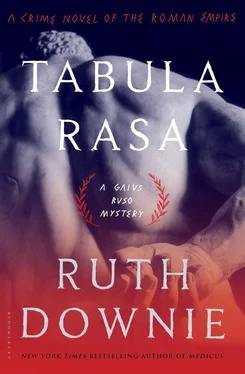


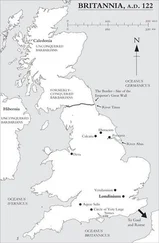
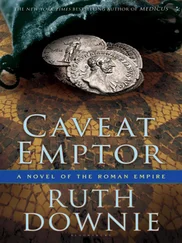
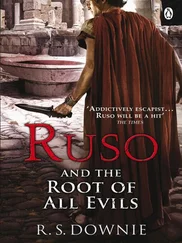
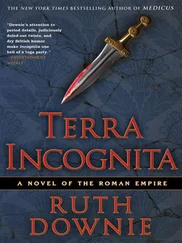
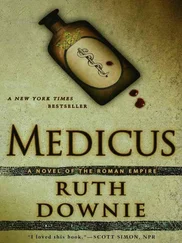
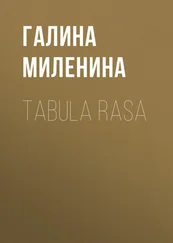
![Антон Архангельский - Tabula Rasa - Исходная точка [калибрятина]](/books/392380/anton-arhangelskij-tabula-rasa-ishodnaya-tochka-k-thumb.webp)


